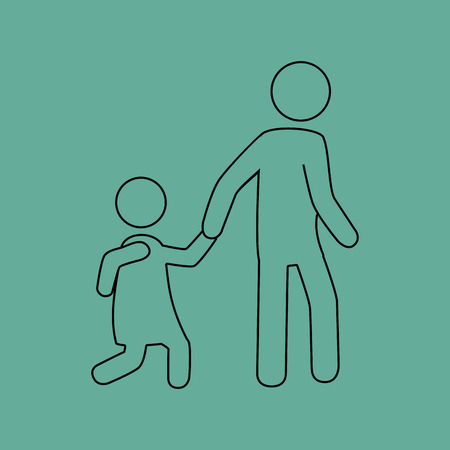Introduction to Child Benefit in the UK
Child Benefit is a financial support offered by the UK government to help families with the cost of raising children. Available across England, Scotland, Wales, and Northern Ireland, this benefit serves as a vital resource for parents and guardians regardless of their employment status or household income (though some higher earners may be affected by the High Income Child Benefit Charge). Its main purpose is to ensure that every child receives adequate support to promote their health, development, and general well-being. For many families, Child Benefit helps cover essential costs such as clothing, nutrition, education resources, and healthcare needs. Understanding how Child Benefit works is crucial for expectant parents, new families, and guardians alike, as it provides ongoing financial assistance throughout a child’s formative years. Whether you are welcoming your first baby or adding to your growing family, knowing your eligibility and how to claim can make a significant difference to your household budget.
2. Who is Eligible for Child Benefit?
Understanding who qualifies for Child Benefit in the UK is essential for families planning their finances. The eligibility criteria are clearly defined by HM Revenue and Customs (HMRC), taking into account residency status, the age of the child, and several special circumstances unique to the UK.
Residency Status
To claim Child Benefit, you must ordinarily reside in the UK. This means England, Scotland, Wales, or Northern Ireland. You must either be:
- A British citizen
- An Irish citizen
- A national of an EEA country or Switzerland (with settled or pre-settled status)
- Someone with leave to remain or refugee status
People subject to immigration control may have additional restrictions. If you are unsure about your residency status, it’s advisable to contact HMRC directly.
Child Age Requirements
The benefit is generally available for children under 16 years old. However, if your child remains in approved education or training, you can continue to receive Child Benefit until they turn 20.
| Childs Age | Eligibility for Child Benefit |
|---|---|
| Under 16 | Eligible |
| 16–19 (in approved education/training) | Eligible |
| 19–20 (still in qualifying education/training) | Eligible (until the course ends or they turn 20) |
| Over 20 | No longer eligible |
Additional Eligibility Conditions and Exceptions
You may claim Child Benefit whether you are working or not. Only one person can claim for a particular child at any one time. There are some exceptions and specific scenarios worth noting:
- If you foster a child, you may still qualify for Child Benefit unless the local authority pays you a fostering allowance.
- If your child lives with someone else (such as a grandparent), only one household can receive Child Benefit for that child.
- If you or your partner earn more than £50,000 per year, you can still claim but may have to pay the High Income Child Benefit Charge (HICBC).
- Adopted children are eligible just like biological children.
- If your child dies, you will usually continue receiving Child Benefit for eight weeks after their death.
Summary Table: Key Eligibility Points
| Criteria | Description/Requirement |
|---|---|
| Residency | Must live in the UK and meet immigration conditions if applicable |
| Child’s Age | Under 16; up to 20 if in approved education/training |
| Status of Carer/Guardian | Only one person per child can claim; applies to parents, guardians, foster/adoptive parents |
| Earnings Thresholds | No limit to claim; HICBC applies over £50,000 annual income |
| Special Circumstances | Covers adopted and foster children; payments continue briefly after child’s death |
Carefully reviewing these criteria ensures that families understand their entitlement and avoid missing out on valuable support through the UK’s Child Benefit scheme.

3. How Much Can You Claim?
Understanding how much you can claim through Child Benefit in the UK is essential for planning your family’s finances. The payment rates are reviewed annually by the government and depend on the number of children you are responsible for. Below is a detailed breakdown of the current rates and important considerations, especially if you or your partner have a higher income.
Breakdown of Child Benefit Payment Rates
| Child | Weekly Rate (2024/25) | Annual Total |
|---|---|---|
| First child | £25.60 | £1,331.20 |
| Each additional child | £16.95 | £881.40 per child |
The payments are typically made every four weeks directly into your bank or building society account, but you can request weekly payments if you are a single parent or receiving certain other benefits.
How Are Amounts Calculated?
The amount you receive depends on how many children you are claiming for. You receive the higher rate for your eldest (or only) child and the lower rate for each additional child. There is no limit to how many children you can claim for, provided you meet eligibility requirements.
The High Income Child Benefit Charge (HICBC)
If you or your partner earn over £50,000 per year, you may be affected by the High Income Child Benefit Charge. This means you might have to pay back some or all of your Child Benefit in the form of extra Income Tax. The charge increases gradually: for every £100 earned over £50,000, 1% of your Child Benefit must be repaid. If either of you earns over £60,000, the charge equals the total amount of Child Benefit received—effectively cancelling it out. However, it can still be worth claiming to protect your National Insurance credits, which count towards your State Pension.
Important Note:
You can choose not to receive Child Benefit payments if you wish to avoid paying the HICBC, but still complete the application process to secure National Insurance credits.
4. How to Apply for Child Benefit
Step-by-Step Guide to Applying for Child Benefit in the UK
Applying for Child Benefit is a straightforward process, but its important to ensure you have all necessary documents and complete the correct forms. Here’s a step-by-step guide to help you navigate the application process confidently.
Step 1: Gather Required Documents
Before starting your application, make sure you have the following information and documents:
| Document/Information | Description |
|---|---|
| Your child’s birth certificate or adoption certificate | Proof of your childs identity and date of birth |
| Your National Insurance number | Required for identification purposes |
| Your bank or building society account details | For payment of Child Benefit |
| Your partner’s details (if applicable) | Name, date of birth, and National Insurance number |
| Immigration status documents (if applicable) | If you are not a UK national, supporting evidence may be needed |
Step 2: Complete the CH2 Form
The main application form for Child Benefit is known as the CH2 form. You can choose to apply either online or by post:
Online Application:
- Visit the official HM Revenue & Customs (HMRC) website and access the online CH2 form.
- Follow the instructions carefully and enter all required information accurately.
- You may need to upload digital copies of supporting documents.
- Submit your completed application electronically.
Postal Application:
- Download the CH2 form from GOV.UK.
- Print and complete the form using black ink and block capitals.
- Attach photocopies of any required documents (do not send originals unless requested).
- Post your completed application to: Child Benefit Office, PO Box 1, Newcastle upon Tyne, NE88 1AA.
Step 3: After Submitting Your Application
Once your application is received, HMRC will process it and contact you if further information is needed. Processing times can vary but typically take around 6–12 weeks. If successful, you’ll receive a Child Benefit award notice confirming the amount and payment schedule. Payments are usually made every four weeks directly into your bank account.
5. Managing and Updating Your Child Benefit Claim
Once you’ve successfully applied for Child Benefit, it’s essential to keep your claim up to date. Regularly managing your claim ensures that you receive the correct amount and avoid any issues with HM Revenue and Customs (HMRC). Here’s how to effectively manage your Child Benefit, report changes, update personal details, and steer clear of common mistakes.
Reporting Changes in Circumstances
Any significant change in your family or personal situation should be reported promptly to HMRC. Failing to do so can result in overpayments, underpayments, or even penalties. Common changes you must report include:
| Change in Circumstance | How to Report |
|---|---|
| Your child leaves full-time education or training (after age 16) | Update via your online account or call the Child Benefit helpline |
| You or your partner move in or out of the household | Contact HMRC by phone or through your Government Gateway account |
| Your child moves abroad or comes to live with someone else | Inform HMRC immediately using your online account |
| A change in immigration status or residency | Update details through official channels on GOV.UK |
Updating Personal Details
If your name, address, bank details, or contact information changes, update these as soon as possible to ensure there are no interruptions to your payments. The easiest way is through your online Child Benefit account, but you can also call the Child Benefit helpline at 0300 200 3100.
Steps to Update Personal Information:
- Sign in to your Government Gateway account.
- Select ‘Child Benefit’ from your dashboard.
- Follow the prompts to update relevant personal details.
Avoiding Common Mistakes
- Double-check all information before submitting updates.
- Report changes as soon as they happen—delays can lead to repayment requests from HMRC.
- If unsure about whether a change affects your claim, seek advice from a local Citizens Advice Bureau or contact HMRC directly.
Quick Reference: Who to Notify and When
| Situation | Notify Within |
|---|---|
| Child leaves approved education/training | Immediately |
| Name, address, or bank details change | As soon as possible |
Staying proactive with your Child Benefit claim helps avoid unnecessary stress and ensures continuous support for your family. Always keep records of correspondence with HMRC for reference and peace of mind.
6. Frequently Asked Questions and Useful Resources
Answers to Common Queries about Child Benefit
Who is eligible for Child Benefit?
Child Benefit is available to anyone responsible for a child under 16 (or under 20 if they remain in approved education or training) who lives in the UK. Both UK nationals and those with settled or pre-settled status may qualify, provided you meet residency requirements.
How much will I receive?
| Type of Claim | Weekly Rate (2024/25) |
|---|---|
| Eldest or Only Child | £25.60 |
| Additional Children (each) | £16.95 |
Please note: If either you or your partner earns over £50,000 per year, you may need to pay a High Income Child Benefit Charge.
How do I apply for Child Benefit?
You can apply online via the official GOV.UK Child Benefit application page, by post using the CH2 form, or by phone if you require additional support. Ensure you have your National Insurance number and your child’s birth certificate to hand.
When will my payments start?
Your payments are usually backdated for up to 3 months from the date of application. Processing times can vary, but you should expect your first payment within 12 weeks of applying.
Can both parents claim Child Benefit?
No, only one person can receive Child Benefit per child. You can choose which parent applies; this is often the primary caregiver.
Useful Resources for Parents and Families
| Resource | Description & Link |
|---|---|
| Official GOV.UK Guidance | Comprehensive guide on eligibility, rates, and how to claim Child Benefit. |
| High Income Child Benefit Charge Tool | Calculate if you need to pay extra tax due to high income. |
| HMRC Contact Centre | Get help with your claim by contacting HMRC directly. |
| NHS Pregnancy and Baby Guide | Support and advice throughout pregnancy and early parenthood. |
| Citizens Advice Bureau | Independent advice for families on benefits and entitlements. |


